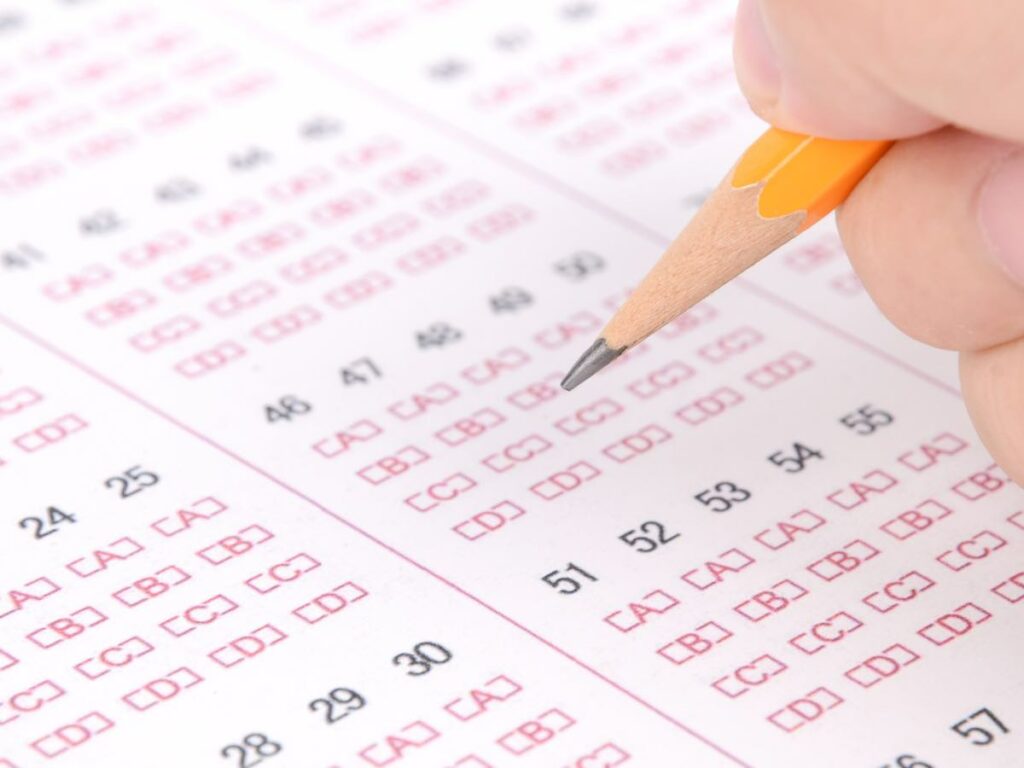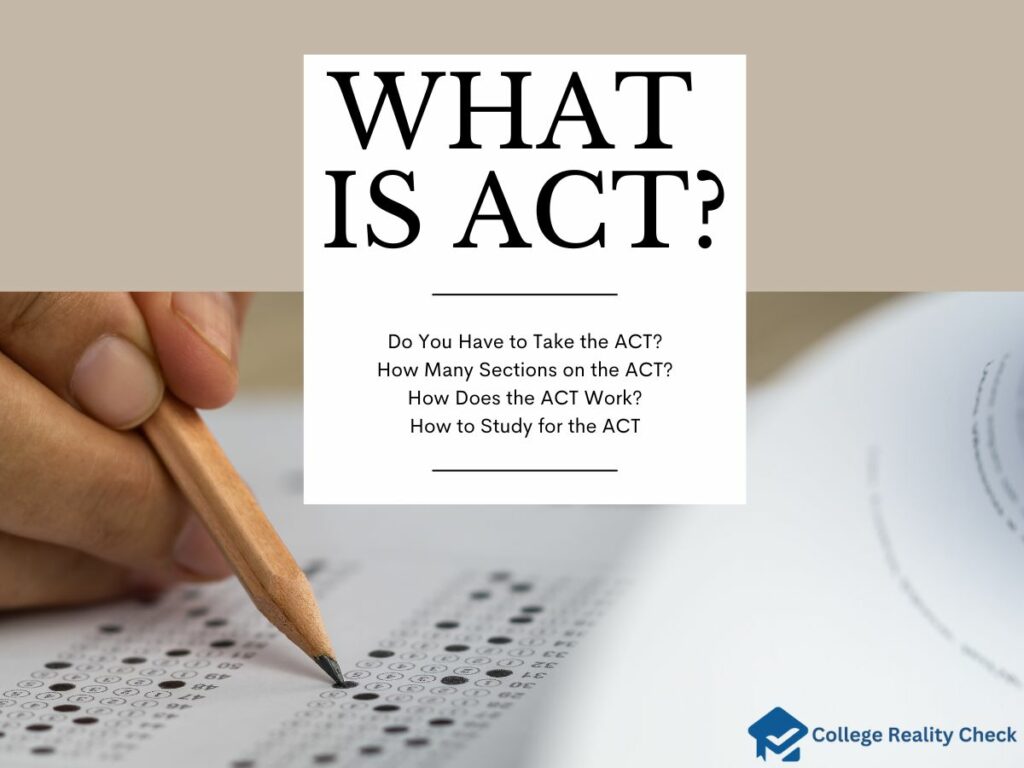
Getting accepted into the college of your dreams can depend on your ACT score. If it’s short by 10 points, you have no choice but to settle with any school on the bottom of your list.
Fortunately, retaking the ACT can give you the opportunity to raise your initial score by 10 points and show the admissions officers that you got what it takes.
One must study for 100 hours or more to get a 10-point ACT score increase. As a general rule, at least 10 hours of studying should be done for every point increase. It’s also vital to improve one’s ACT test-taking strategies, such as answering easy questions first and making educated guesses if needed.
When it comes to setting an ACT score goal, there are a couple of things to consider.
First, your ACT score should be higher than 50% of all test-takers. Second, your ACT score should be high enough to get you accepted into the college of your choice.
No matter if you are unhappy with your ACT practice test score or frustrated with your actual ACT score, keep reading. Below are some important things you need to know about raising your ACT score by 10 points. Yes, it’s possible to increase your ACT score by that much, provided you know the secrets!
Before anything else, let’s answer this question that many test-takers are too embarrassed to ask…
A good ACT score is 21. It puts the test-taker in the 50th percentile, which means that he or she outperformed 50% of all test-takers. A good ACT score is also something high enough for the schools the test-taker prefers. Many selective colleges and universities require an ACT score of at least 30.
Without any doubt, having a high ACT score is a good thing. However, it’s also a must to determine what ACT score is high enough for the test-taker.

Different test-takers have different ACT score goals. What’s high for one student may be low for another. You may get a 25 on the ACT and feel ecstatic since that’s greater than the median score of 21.
However, for someone who would like to attend an Ivy League school, an ACT score of 21 is not worthy of a celebration.
Before you take an ACT practice test or the actual ACT itself, it’s a good idea to determine your desired ACT score. This will give you an idea of how much time and effort you will have to put into it.
There are two things to consider when setting your ACT score goal:
Different schools have different admission requirements. This is true for ACT scores.
Most colleges and universities accept students whose ACT scores range from 15 to 19, which is below the national average. On the other hand, most elite schools in the nation accept students whose ACT scores are 30 and above, which is way above the national average.
Let’s take a quick look at the average ACT scores of students admitted into the Ivy Leagues:
| IVY COLLEGE | ACT SCORE |
|---|---|
| Brown University | 29 to 34 |
| Columbia University | 32 to 35 |
| Cornell University | 30 to 33 |
| Dartmouth College | 30 to 34 |
| Harvard University | 32 to 35 |
| Princeton University | 31 to 35 |
| University of Pennsylvania | 30 to 34 |
| Yale University | 31 to 35 |
As a general rule, the higher your ACT score, the more chances you have of being accepted into selective schools. It also increases your chances of getting a degree for less with the help of scholarships and grants.
Besides the admissions officers of the college or university of your liking, there’s somebody else to impress with a good ACT score. And it’s no one else but the test-taker himself: you.
It’s perfectly fine to aim to score better than 50% of all test-takers.
But if you would like to fill your heart with pride and joy, you might want to consider outperforming more than just half of all test-takers. Nothing can boost your self-confidence more than knowing that you have a better ACT score than 75% or 90% of all test-takers!
This is when the importance of setting an ACT score goal you feel you deserve comes in.
If you took the ACT and you’re not pleased with your score because you know for a fact that you can do better and deserve so much more, then setting up a score goal before a retake can become a personal matter.
Here’s a table that can help you establish a personal ACT score goal:

What makes the ACT different from high school tests is that answering it requires a different strategy. And failure to answer the test properly can lead to disastrous results. It’s for this reason exactly why we mentioned earlier that it’s possible for smart students with high GPAs to end up with low ACT scores.
The following are some very simple yet highly effective hacks on answering the ACT to add 10 points to your score:
If a question seems hard to answer, mark it and leave it. Difficult questions can take up lots of precious time, leaving you with very little to no time for easy ones.
It’s because of this why it’s a smart move to answer the easy questions first. Not only will this let you manage your limited time very well but also increase your self-confidence. If you feel confident enough, you will have higher chances of answering some of the most mind-boggling ACT questions right.
Make sure that you keep your answer sheet clean and free of unnecessary marks.
On the other hand, you can write all over your test booklet.
For instance, it’s a great idea to encircle or underline important words, especially those in wordy passages. It will help you save a lot of precious time — always remember that you will have to answer all 215 ACT questions within two hours and 55 minutes only.
In some instances, it’s not the correct answers you should figure out. Looking for the wrong answers can help you increase your ACT score by 10 points or more. That’s because it will help boost your chances of picking the right one.
Eliminate one wrong answer, and you have a 25% chance of answering the question right! And if you can eliminate three wrong answers, you will have a 50% chance of getting the right answer! So, if it seems like you cannot determine the letter to pick, check which letters you know you shouldn’t pick.
It’s fine to skip a question if you cannot answer it right away. However, it’s not fine to skip answering a question because you still don’t know the answer to it after giving it another shot.
Test-takers won’t be penalized for guessing, which is why you may guess to your heart’s content. However, make an educated guess, which is something that you know could be the correct answer.
So, needless to say, you should refrain from doing what other test-takers do on the ACT: just choosing the letter C every single time.
The belief that the letter C is the most common answer on the ACT is just a myth.
It’s rooted in the fact that teachers who design multiple-choice tests usually place the correct answers in the middle so that the students would have a hard time making correct guesses. On the ACT, a computer randomizes the answer choices.
Because there is nothing to fear when guessing on the ACT, see to it that you have filled in each and every bubble.
Check that there are no blank bubbles before you submit your answer sheet. If there are and there’s no time to reread the questions, just make a wild guess — after all, there’s a 20% chance that it will be the right one. And while you’re at it, ensure that there are also no partially filled in bubbles.
Related Post: 12 Best ACT Test Hacks
You can raise your ACT score by 10 points by getting ready for the test very well, whether it’s your first or second time to take it.
Since it is recommended to spend at least 10 hours studying for every one-point increase, you should review for the ACT for not less than 100 hours. Per day, it’s a good idea to limit your studying to two hours.
Besides studying for the ACT, it’s also a must that you acquaint yourself with some ACT test-taking hacks.
Answering the easy questions first and the difficult questions last, eliminating the wrong answer choices, making educated guesses, writing on the test booklet — all of these strategies can help fend off unnecessary problems during the test, allowing you to increase your chances of adding 10 points to your ACT score.
Disclaimer: The views and opinions expressed in this article are those of the authors and do not necessarily represent those of the College Reality Check.
I graduated with BA in Nursing and $36,000 in student loan debt from the UCF. After a decade in the workforce, I went back to school to obtain my MBA from UMGC.